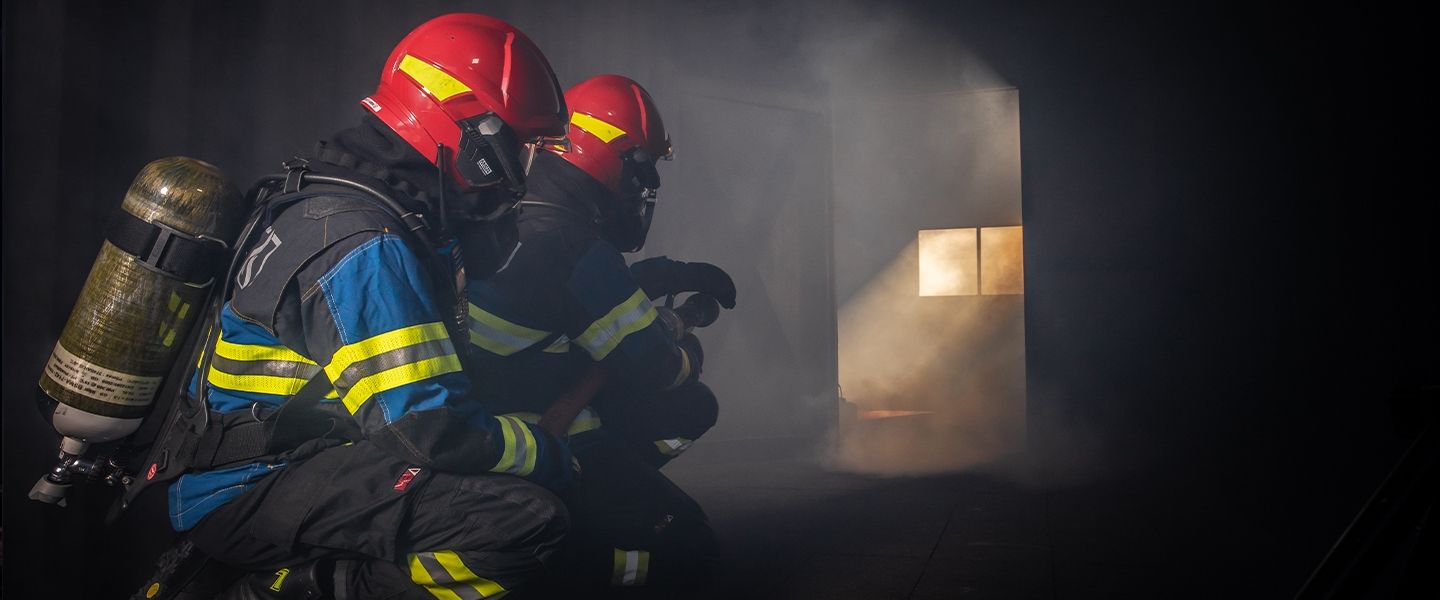Brandwacht Huren provides different types of fire marshals: industrial, government-certified, and repressive. Which fire marshal you actually need depends on the situation they will be working in. Our clients often ask for the best fire marshals available and they then specifically request us to provide government-certified fire marshals. But they are not always the best option for every specific situation. The differences between government-certified and repressive are not always clear. We therefore explain these differences in detail below.
Government-certified fire marshal
A government-certified fire marshal has, as a minimum requirement, done a traineeship with a fire brigade, but is no longer an active member of a fire brigade. In fact, a government-certified fire marshal is the same as an ordinary firefighter, but has not undergone any recent medical examinations and therefore cannot be deployed in all situations.
Normally, they can be deployed in situations where the fire alarm system does not function properly or needs to be replaced. Environmental authorities often require that these fire marshals be present if they think that fire safety is at stake.
The term government-certified fire marshal can cause confusion since, in the Netherlands, government-certified (or ‘rijksgediplomeerd’) actually covers both fire marshals who are well trained and fit, and fire marshals who have stopped being active members of a fire brigade long ago.
Repressive fire marshal
Someone who is still in active fire service duty or still active as a voluntary firefighter can call themselves ‘repressive’. This means that they are active in a fire brigade and undergo periodic tests and examinations. Repressive fire marshals act both preventatively and repressively. They can fight incidents. Being the elite among fire marshals they are often engaged for damping down after a fire and for projects with an increased probability of fire.
For many firefighters, working as a fire marshal is an excellent opportunity to use their fire service experience in other work situations as well. Brandwacht Huren has a large pool of repressive fire marshals who can be hired by customers several days a week in combination with their work as voluntary fire personnel.
Industrial fire marshals
Industrial fire marshals form a third category of fire marshals. Industrial fire marshals can be deployed for shutdowns, turnarounds, or when work is carried out in confined spaces, usually in the petrochemical industry or in other industrial environments. The name says it all. They monitor industrial work activities in order to be able to call for help quickly and effectively if an emergency occurs. In the Netherlands, industrial fire marshals are never allowed to enter a confined space on their own as they might put themselves in danger as well then. Industrial fire marshals are also sometimes referred to as hot work observers or manhole observers or guards. All these names boil down to the same thing and the people who have these positions do the same work.
In order to work as an industrial fire marshal, you will need some certificates. The courses you have to take for this are: VCA Basis (Basic VCA), Kleine blusmiddelen (Small fire extinguishing equipment) & Werken als buitenwacht/mangatwacht (Working as an outside/manhole observer). Brandwacht Huren offers all these training courses through its BWH Academy. If you complete all the training courses in one go, you will be ready for active service within one week.
Which type of fire marshal is required depends on the possible hazard and the requirements imposed by the environmental authorities. Brandwacht Huren can make all different types of fire marshal available anywhere in the Netherlands. They will arrive at your site within two hours.
